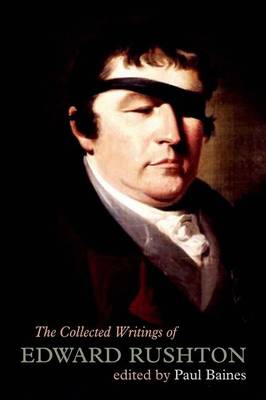
- Retrait gratuit dans votre magasin Club
- 7.000.000 titres dans notre catalogue
- Payer en toute sécurité
- Toujours un magasin près de chez vous
- Retrait gratuit dans votre magasin Club
- 7.000.0000 titres dans notre catalogue
- Payer en toute sécurité
- Toujours un magasin près de chez vous
Description
The edition brings together the known writings in poetry and prose of Edward Rushton (1756--1814). Blinded by trachoma after an outbreak on the slaving ship in which he was a young officer, Rushton returned to Liverpool to scratch a living as a publican, newspaper editor, and finally bookseller and publisher. In his day Rushton was a well-known Liverpool poet and reformer, with an impressively wide range of causes (the Liverpool Blind School, the Liverpool Marine Society, and many radical political groups). Many of his songs, particularly the marine ballads, were very familiar in Britain and America. In the later Victorian period, as a particular version of romanticism began to dominate literary sensibilities, Rushton's overt politics fell from favour and he became rather obscure, at least by comparison with his like-minded (but much better off) friend William Roscoe. As the history of slavery abolition and other radical causes has come to be re-examined, the bicentenary of Rushton's death, falling in November 2014, has suggested an opportunity to take a new look at his remarkable career and impressive body of work. There has never been a critical edition of Rushton's poems. His own 1806 edition omits much, including what is his best-known work in modern times, the anti-slavery West-Indian Eclogues of 1787; the posthumous 1824 edition omits much from the 1806 collection while drawing in other work. The present edition works from the earliest datable sources, in newspapers, chapbooks, periodicals, and broadsides, providing a clean text with significant revisions and variants noted in the commentary. Unfamiliar words are glossed, and brief introductions and contextual commentaries, informed by the latest scholarship, are given for each piece of writing.
Spécifications
Parties prenantes
- Auteur(s) :
- Editeur:
Contenu
- Nombre de pages :
- 224
- Langue:
- Anglais
- Collection :
- Tome:
- n° 65
Caractéristiques
- EAN:
- 9781781381366
- Date de parution :
- 31-10-14
- Format:
- Livre relié
- Format numérique:
- Genaaid
- Dimensions :
- 157 mm x 234 mm
- Poids :
- 657 g

Les avis
Nous publions uniquement les avis qui respectent les conditions requises. Consultez nos conditions pour les avis.






